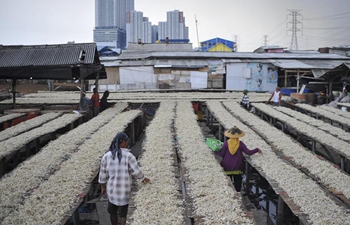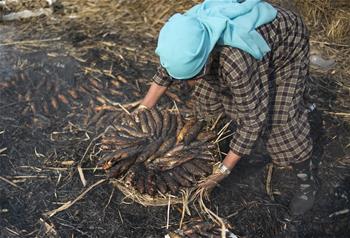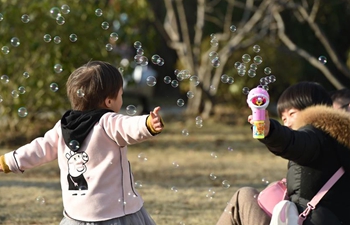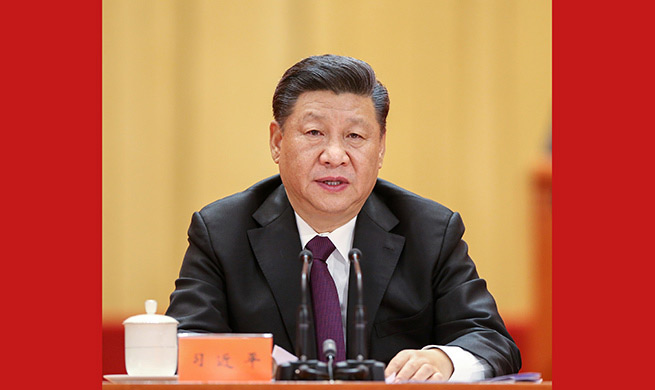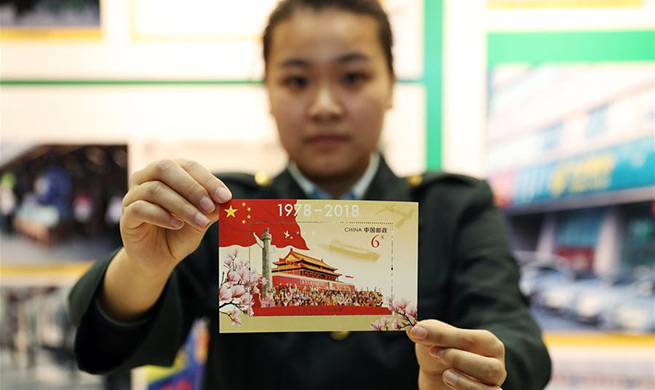ZHENGZHOU, Dec. 19 (Xinhua) -- For villagers in Wenxian County's Jueshitou Village in central China's Henan Province, Wang Yongxin, as their general practitioner, is more like a close family member.
The 68-year-old doctor has been helping those in his hometown for the past five decades.
In 1968, the then 18-year-old Wang became a "barefoot doctor" after two years of training at a medical school in the city of Jiaozuo in Henan, four years after he graduated from high school.
"The name 'barefoot doctor' comes from southern farmers who often work barefoot in the rice paddies," said Wang.
He was among numerous primary health care providers who received basic medical training and treated hundreds of millions of farmers in rural areas where urban-trained doctors would not settle.
By the 1960s, 90 percent of China's rural villages had access to a rural cooperative medical system in which community participation was included in rural health care services, and barefoot doctors played a major role.
At that time, a barefoot doctor was a part-time job since they also worked in the fields. "During the harvest season, I always carried my medical box," said Wang. "I would not let my patients wait."
"I promoted basic hygiene, preventive health care and treated common illnesses for villagers," Wang said, adding he used to dispense medicine and visit his patients door to door during the years when malaria and endemic diseases were rampant.
After China's reform and opening-up in the late 1970s, the cooperative medical system was abolished in the early 1980s, along with the barefoot doctor system.
A large number of barefoot doctors received additional medical training and became village doctors. They served as the cornerstone of a nationwide primary health care program.
In 1987, the then 38-year-old Wang also became a village doctor after he obtained his medical certificate. He also refurbished two of his rooms to treat his patients.
Ever since the barefoot doctors were abolished, the new government-funded cooperatives medical scheme has continued to sustain the village doctor system by providing affordable basic health care to the rural farming population.
In 2013, China rolled out an insurance program to increase the medical coverage for the country's growing population, especially coverage for serious diseases. The new program primarily relies on the experiences of the barefoot doctor system.
In 2015, the Jueshitou Village's new clinic center was put into operation in response to a national health campaign to encourage the construction of standardized health facilities in rural regions.
Wang began to see his patients in one of the new offices in the 70 square meter center. His diagnosis room has a glucometer, a hemodynamometer, chairs for infusion therapy and shelves for the health records and prescriptions of the villagers.
With government subsidies, Wang has a stable monthly salary of over 3,000 yuan (about 435 U.S. dollars). Before that, he was paid by his village and was responsible for his own profit and loss.
"These days, villagers pay more attention to their physical conditions," said Wang. "They always come to the center to monitor their blood pressure and have other health checks."
"I'm a regular at the center because the routine health checks are often free of charge," said 51-year-old villager Ren Xiaoxiang, adding that most of the regular medication costs are covered by the country's basic medical insurance.
In 2003, China proposed a government-funded basic medical insurance covering both costs at village-level health centers for minor illnesses, as well as the expenses of treatment for serious illnesses.
Wang said he also practices as a family physician, providing continuous health care services for households in the village.
Village doctors like Wang were also integrated into the country's hierarchical medical system where they could refer seriously ill patients to township and county hospitals.
According to the health sector, China's basic pension has covered more than 900 million people and over 95 percent of the Chinese population now enjoy basic medical insurance.
"I've seen the dramatic improvement of rural China's health care over the past decades, and I'm just so grateful to have been a part of it," Wang said.






